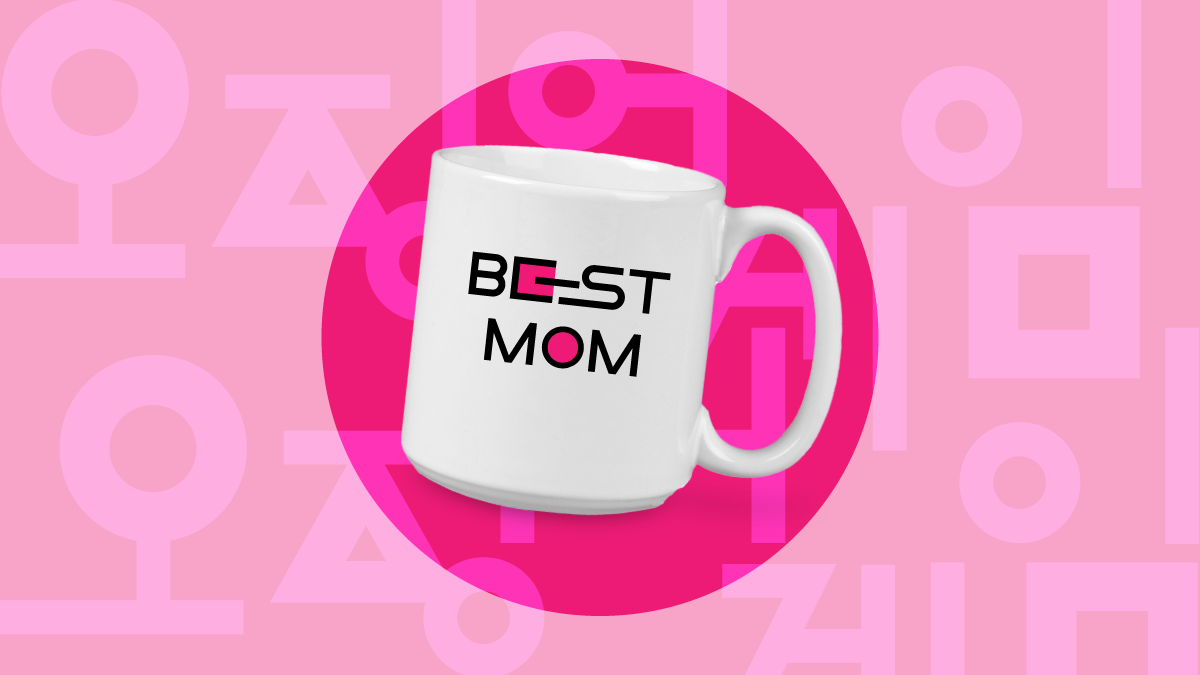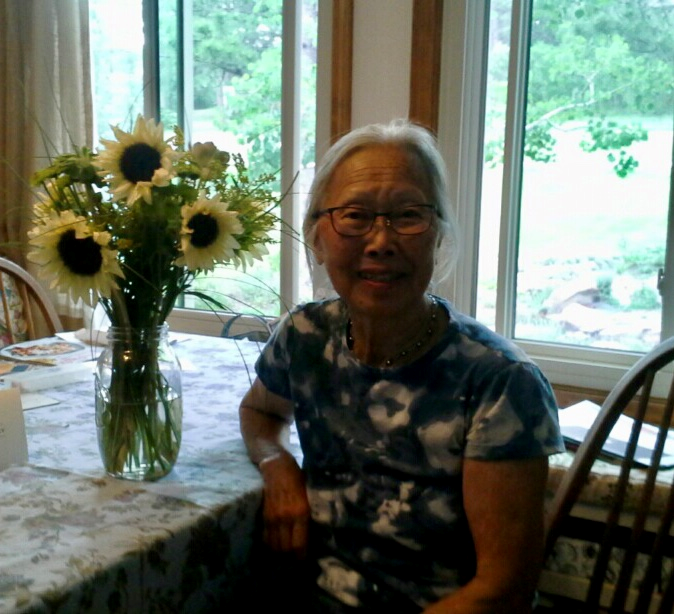What Netflix’s Squid Game 3 Teaches Us About Motherhood, Identity, and Survival in a Broken System

Note: This blog contains major spoilers from Squid Game season three, episodes two and three. Only read on if you’ve watched the show or don’t mind spoilers.
When the third and final season of Squid Game came out on Netflix last month, I was ready for another action-packed season filled with rivalries, bloodshed, and sacrifice. Of course, the season had all of that—and more. But, when the show ended, I was left reflecting on something unexpected: what it means to be a mother, and how to best show up for your child.
The South Korean survival thriller, which is currently the most-watched non-English show on Netflix, follows hundreds of cash-strapped individuals competing for a massive cash prize in a deadly competition based on traditional Korean children’s games.
The series explores themes of wealth and sacrifice, and the lengths individuals will go to for survival and financial gain in a country that experiences significant wealth and income inequality. But it also more subtly touches on the concept of motherhood. In season two, we are introduced to the pregnant Kim Jun-hee (Player 222), who is driven to enter the games largely by a need to provide for her unborn child. We also meet Jang Geum-ja (Player 149), who has chosen to participate to help pay off the debts of her son, Park Yong-sik (Player 007).
Motherhood is something I’ve been thinking about a lot lately, especially as the Trump administration seeks to boost the birthrate in the U.S. while making it significantly more difficult to be a parent, and as Elon Musk—who has 14 kids with four different women—pushes for women to have more babies. This so-called “pronatalist movement” calls for bigger families and policies that encourage childbearing, but does little to support the women who are responsible for the majority of the childbearing and child-rearing, and who often lack access to adequate medical care or affordable child care.
The media tends to paint mothers in black and white—as either nurturing and self-sacrificing or neglectful and selfish. Think Donna from Mamma Mia, who is loving and deeply hardworking, and gives up her musical career to raise her daughter. Contrast that with the wicked stepmother in Cinderella, who is cold-hearted, conniving, and forces her stepdaughter to serve as a maid in her own home. This lack of nuance reflects and maintains unrealistic expectations for mothers, perpetuating a narrow view of what constitutes “good” mothering. If mothers deviate from the selfless ideal—if they get angry or act on their behalf—they are seen as monstrous. In other words, these stories rarely give mothers space to be human.
Like many films and TV shows, Squid Game depicts the unwavering power of a mother’s love and their willingness to sacrifice anything and everything to keep their children safe. Geum-ja serves as a motherly figure to both Jun-hee and her son, often offering them her small portions of food. When Jun-hee gives birth during one of the games, Geum-ja is by her side through it all, helping to successfully deliver the baby. Once the baby is born, Jun-hee is willing to do anything to protect it.
Watching the show, Geum-ja reminded me a lot of my mother and grandmother, who immigrated to the U.S. from South Korea in 1977. My grandmother gave up her whole life—her home, her friends, her family—to give her three children a chance at a better life. She worked tirelessly in a sweatshop in New York to raise enough money to send my mom and her two siblings to college. Through it all, she never showed weakness. She always put on her best face.
My mother, too, was always willing to support me in my passions, even when it meant sacrificing her own.
But what happens when a mother stops sacrificing?
It’s the fourth game in the Squid Game competition: a round of 숨바꼭질 (hide-and-seek), which I coincidentally used to play with my grandmother growing up. This version, though, is deadly. Participants are randomly split into two teams, with each member on the hiding team (blue team) given a key, and each member on the seeking team (red team) given a knife. When members of the hiding team enter the game, they have two minutes to hide in the maze—which is filled with locked doors that cannot be relocked—before the seeking team comes to find them. The seekers must kill at least one hider within 30 minutes to pass the game, or else they will be eliminated. The hiders must either use their keys to unlock doors and find an exit, or hide until the 30-minute time limit is reached.
Of course, Geum-ja and her son are placed on different teams, with Geum-ja on the hiding team and Yong-sik on the seeking team. The whole game is intense and terrifying, but the most tragic moment happens in the final seconds of the game.
Yong-sik finds his mother, alongside Jun-hee and her newborn baby, beside the maze’s exit. There is little time left, and Yong-sik still hasn’t killed anyone, meaning he’ll be killed if he doesn’t act quickly.
Geum-ja offers the ultimate sacrifice: to let her son kill her in order for him to live. It’s an act of selflessness that maybe only a parent or guardian figure could understand.
“Stab me,” she tells him. “I’ve lived long enough.”
But he can’t. That’s when he turns on Jun-hee, who’s clutching her newborn baby. Before he can kill the defenseless pair, Geum-ja unsheathes the knife hair pin she’s kept hidden throughout the game, using it to stab her own son. Not in anger or fear, but with shaky hands and tears streaming down her face.
In a way, it was perhaps the strongest act of motherly love—preventing her son from becoming the monster she knew he wasn’t. But it was also an act of defiance. A moment where she sees herself as a moral human, not just a mother. A moment where she chose to act for herself and save the life of two innocent people—to choose humanity over blood. Even so, it’s a devastating moment.
Later that night, Geum-ja takes her own life.
“She feels an immense amount of guilt after having killed her son. And without her son, she’s nothing, she’s empty, and she’s lost everything,” said Geum-ja actress Kang Ae-sim in an interview with TheWrap.
Society tends to make motherhood an all-consuming identity. Mothers can oftentimes lose their sense of self. They can forget what it means to be their own individual being. Kang’s quote shows just that: without her son, Geum-ja feels worthless, empty, and shameful.
Geum-ja’s story is heartbreaking. Geum-ja has lost her only child, the one to which she has dedicated her entire life. But even more painful is the fact that she couldn’t live with the guilt of his death, even after making an understandable decision. Society had told her that a good mother would do anything to protect their child, even if it meant letting two innocent people die. Society told her she had failed as a mother, because she chose to act not just as a mother, but as a person.
Because she was never given the space to be herself to begin with. She was never given the space to be Geum-ja, not just 엄마 (mom).
Motherhood is not black and white. It is a complex relationship complete with both hardships and beauty. Women deserve the chance to reclaim what it means to be a mother, to make it part of their identity and not their whole self. It’s our choice whether we want to have children or not—and whatever choice we make should be celebrated. Motherhood shouldn’t be seen as our ultimate purpose, and it shouldn’t become our only identity.
Mothers should be given the grace—and the space—to be their own person. To make choices. To be imperfect. And I, for one, am grateful that Geum-ja gave us a glimpse into what the messy, complex reality of being a whole person truly looks like.




